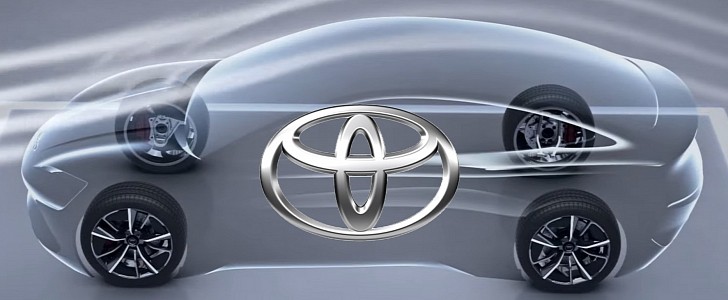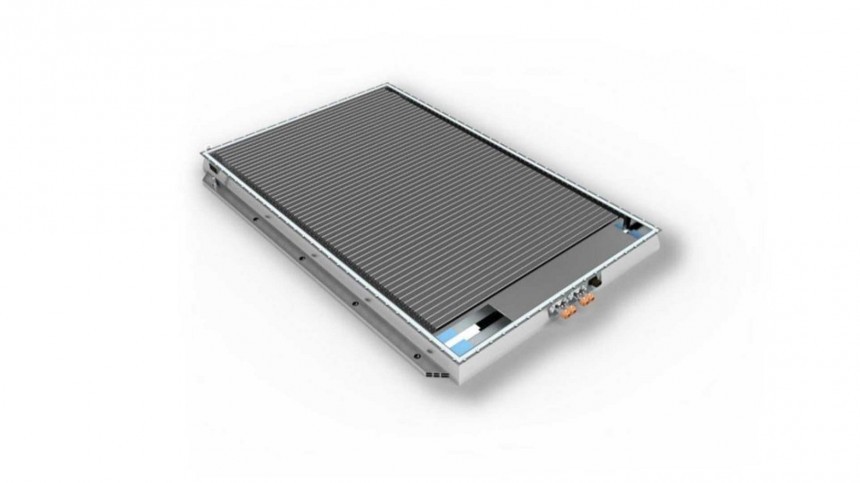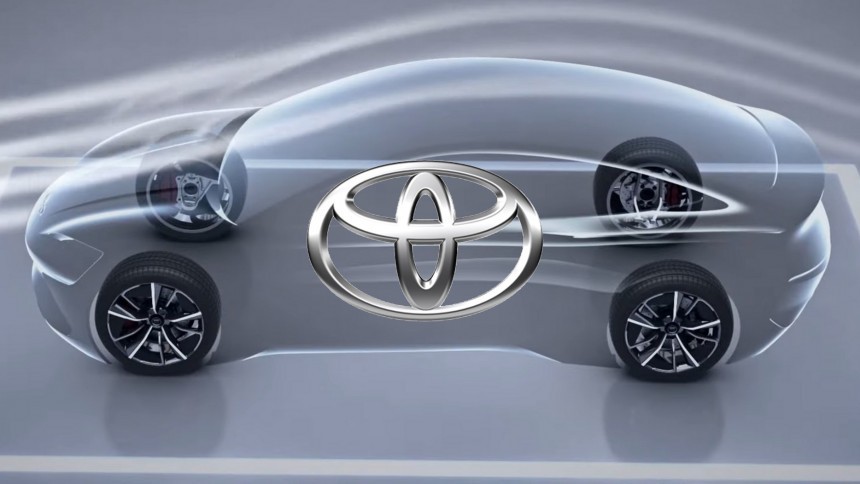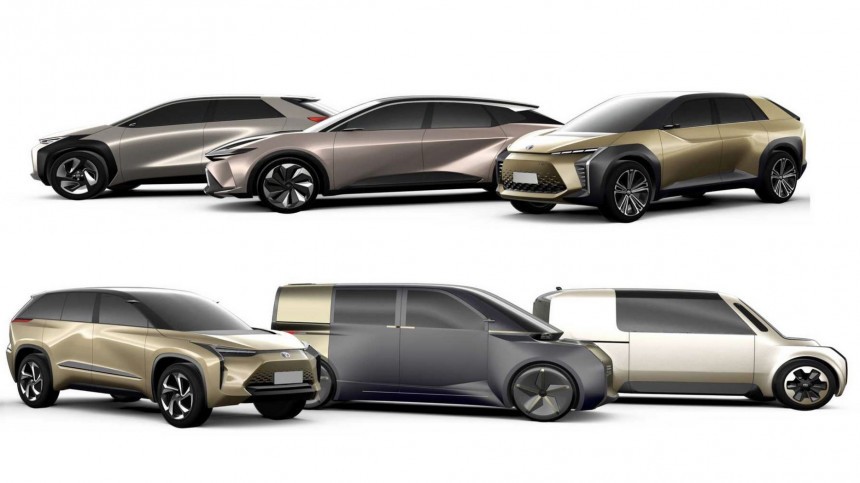Reuters broke the news about a new electric sedan that will be presented in April 2022 and sold initially only in China. It will be a partnership between Toyota and BYD, but the really fascinating part is not that it will be a sort of electric Corolla or that it will have the Blade Battery. What is impressive is how this partnership was even possible.
Toyota never really took BYD seriously until it tested more recent vehicles from the Chinese brand in 2017. They showed a level of maturity that led the Japanese company to create a joint R&D (research and development) center with BYD in Shenzhen in April 2021. Nowadays, about two dozen Toyota engineers work with 100 BYD employees in that center.
In 2020, BYD presented the Blade Battery, a battery pack based on LFP (lithium iron phosphate) cells that the Japanese carmaker almost dismissed. According to Reuters, Toyota engineers initially reputed the Blade Battery as too simple to be trusted. The realization of the genius behind the solution came only later.
The Blade Battery uses what the industry names as CTP (cell-to-pack). That means that the own LFP cells make part of the battery pack strucuture, which saves weight and increases energy density, one of this chemistry's handicaps. With more energy density and less weight, LFP became a viable proposition for modern electric cars.
Although it was radically simple, it was both cheap to produce and able to free up space in an EV. The Blade Battery has a thickness of around 10 centimeters (3.9 inches) when its modules are laid flat on the floor. That’s 5 cm (1.9 in) to 10 cm thinner than regular battery packs. It would be interesting to learn how it compares to the CATL LFP battery pack as well, which uses similar technology and the same chemistry.
At first, Toyota considered that the BYD development method was a way of cutting corners. While the Japanese carmaker refuses to change the car design and technologies after it defines them, BYD embraces these changes even after two years into development.
That makes BYD vehicles present more up-to-date technology than Toyota cars. On the other hand, the Japanese carmaker is sure its vehicles will be very reliable, and it is not sure BYD can say the same. The fact that Toyota does not dismiss that right off the bat speaks a bunch.
The Japanese carmaker seems to be open to learning from BYD if the Chinese company proves its development method is trustworthy. The fact that BYD produces many of its own components, being a highly verticalized company, may be why it can make changes when the project is already close to completion, for example.
Reuters mentioned that Toyota is researching solid-state batteries and has been accused of trying to make combustion engines last as much as possible. What it did not bring up is that Toyota is probably avoiding fully committing to EVs because it does not think the technology is ready. Solid-state cells may be the answer for that.
In that sense, Toyota’s joint project with BYD for an electric Corolla may be what it takes for Toyota to trust the Blade Battery. If that happens, this BYD solution will be part of Toyota’s electrification efforts.
When this new sedan is presented at the Beijing Auto Show in April 2022 as a concept car, pay careful attention to it. It may become Toyota’s second bZ (beyond Zero) product after the bZ4X. If you are wondering about its design, it is not among the images Toyota already released of the bZ family, as you can see yourself in our gallery.
That’s probably because Toyota did not predict making this car until very recently. It also has to do with the fact that sedans are still top-rated in China despite losing ground everywhere else. Predicted to cost around RMB200,000 ($31,366 at the current exchange rate), it will undercut the Model 3, which starts at RMB255,652 ($40,093).
If this new electric Corolla proves to be what Toyota is looking for in terms of cost and roominess, we may see this partnership spread to new markets, either with the future bZ sedan or in new projects. That would give Toyota more time to present its solid-state cells. According to most Japanese carmakers, they are the ones that will finally bring production cost parity with ICE cars.
In 2020, BYD presented the Blade Battery, a battery pack based on LFP (lithium iron phosphate) cells that the Japanese carmaker almost dismissed. According to Reuters, Toyota engineers initially reputed the Blade Battery as too simple to be trusted. The realization of the genius behind the solution came only later.
The Blade Battery uses what the industry names as CTP (cell-to-pack). That means that the own LFP cells make part of the battery pack strucuture, which saves weight and increases energy density, one of this chemistry's handicaps. With more energy density and less weight, LFP became a viable proposition for modern electric cars.
At first, Toyota considered that the BYD development method was a way of cutting corners. While the Japanese carmaker refuses to change the car design and technologies after it defines them, BYD embraces these changes even after two years into development.
That makes BYD vehicles present more up-to-date technology than Toyota cars. On the other hand, the Japanese carmaker is sure its vehicles will be very reliable, and it is not sure BYD can say the same. The fact that Toyota does not dismiss that right off the bat speaks a bunch.
Reuters mentioned that Toyota is researching solid-state batteries and has been accused of trying to make combustion engines last as much as possible. What it did not bring up is that Toyota is probably avoiding fully committing to EVs because it does not think the technology is ready. Solid-state cells may be the answer for that.
In that sense, Toyota’s joint project with BYD for an electric Corolla may be what it takes for Toyota to trust the Blade Battery. If that happens, this BYD solution will be part of Toyota’s electrification efforts.
That’s probably because Toyota did not predict making this car until very recently. It also has to do with the fact that sedans are still top-rated in China despite losing ground everywhere else. Predicted to cost around RMB200,000 ($31,366 at the current exchange rate), it will undercut the Model 3, which starts at RMB255,652 ($40,093).
If this new electric Corolla proves to be what Toyota is looking for in terms of cost and roominess, we may see this partnership spread to new markets, either with the future bZ sedan or in new projects. That would give Toyota more time to present its solid-state cells. According to most Japanese carmakers, they are the ones that will finally bring production cost parity with ICE cars.
















